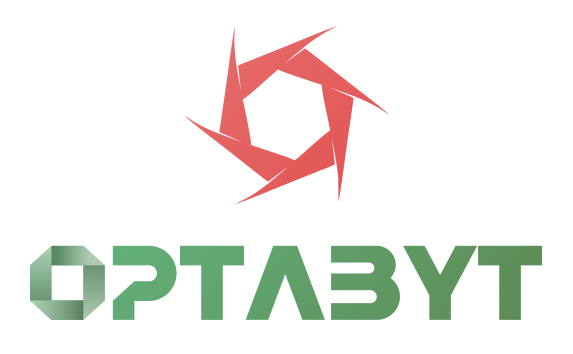
Table of Contents
ToggleNode.js Development Norway: Powering Fast, Scalable Digital Solutions
Table of Contents
Introduction
If you’re looking to build fast, scalable, and modern web applications, Node.js is one of the top technologies in the world—and it’s making a significant impact in Norway. Whether you’re a startup in Oslo creating a SaaS product or a large enterprise in Bergen upgrading internal systems, Node.js development in Norway delivers the performance, flexibility, and speed your digital project needs.
This guide explains how Norwegian companies are using Node.js to build robust backends, real-time applications, RESTful APIs, and microservice architectures. We’ll walk through its benefits, technologies, real-world use cases, and how to find the right development partner.
What is Node.js?
Node.js is an open-source, event-driven JavaScript runtime built on Chrome’s V8 engine. It enables developers to use JavaScript on both the frontend and backend, creating full-stack web applications with a single language.
Node.js is ideal for:
Applications with high I/O operations
Real-time apps like chats or live tracking
Scalable systems
Microservices-based architecture
Why Choose Node.js Development in Norway?
1. Fast Development with JavaScript
Since JavaScript is widely known in the Norwegian tech scene, using Node.js ensures faster development and easier collaboration between teams.
2. Real-Time Features
From financial dashboards to food delivery apps, Node.js supports real-time communication via WebSockets and tools like Socket.io.
3. Scalability
Need to support thousands of users at once? Node.js’s non-blocking I/O and event-driven model allows apps to scale efficiently.
4. Strong Developer Community
Node.js has a growing presence in Norway. Numerous local developers and agencies offer professional services from consulting to full-stack development.
5. Cloud and Microservices Friendly
Node.js integrates well with AWS, Azure, and Google Cloud. It’s perfect for microservices, making apps easier to scale and manage.
Node.js Use Cases in Norway
SaaS Platforms: With secure APIs and dashboards
Real-Time Systems: Live messaging, logistics, delivery tracking
E-commerce: Fast product filtering and cart syncing
IoT Dashboards: Real-time device data visualization
API Backends: REST or GraphQL APIs for mobile/web apps
Fintech: Secure systems for banking and data analysis
Booking Platforms: Search and reservation systems
Internal Tools: Custom CRMs, HR dashboards, admin panels
Core Technologies in Node.js Projects
Backend Frameworks
Express.js – Minimal and efficient
NestJS – Enterprise-grade, TypeScript-based
Fastify – High-performance with low overhead
Koa.js – Modular and modern
Real-Time Communication
Socket.io – Event-driven communication
WebSockets – Persistent two-way connections
Databases
MongoDB – Flexible NoSQL
PostgreSQL – Advanced SQL
Redis – Fast in-memory caching
Tools & Libraries
Passport.js – Authentication
Mongoose – MongoDB modeling
Jest/Mocha – Testing
TypeScript – Safer code
PM2 – Process management
Docker & Kubernetes – Scalable deployments
Our Node.js Services in Norway
Custom Web App Development
Tailored backend systems for healthcare, logistics, education, and finance sectors.
RESTful & GraphQL API Development
Build high-performance APIs for your frontend, mobile app, or partners.
Real-Time App Development
Create systems for chat, notifications, tracking, and live metrics.
Microservices Architecture
Break systems into smaller parts to improve scalability and manageability.
Backend for Frontend (BFF)
Custom APIs to improve performance and reduce load times.
Third-Party Integrations
Connect to CRMs, ERPs, payment gateways (like Vipps or Klarna), and cloud services.
Performance Optimization
Speed up slow systems using async processing, code refactoring, and caching.
Maintenance & Support
Ongoing bug fixes, updates, and infrastructure monitoring.
Node.js Development Workflow
Discovery & Planning
Define your goals and tech requirements
Plan a scalable backend structure
Setup
Choose the right framework
Configure database and deployment tools
Development
Write modular, testable TypeScript code
Implement APIs, real-time logic, authentication
Testing
Unit and integration tests
Performance and security checks
Deployment
Launch to AWS, Azure, or Norwegian hosting
Set up containers, SSL, and backups
Maintenance
Monitor uptime
Manage updates and load balancing
Cost Estimates for Node.js Projects in Norway
| Project Type | Estimated Cost (NOK) | Timeline |
|---|---|---|
| Simple API/Admin Panel | 60,000 – 100,000 | 2 – 4 weeks |
| Real-Time App | 120,000 – 200,000 | 4 – 6 weeks |
| SaaS/E-commerce Platform | 200,000 – 400,000 | 6 – 10 weeks |
| Enterprise Microservices | 400,000 – 800,000+ | 10 – 16+ weeks |
Costs vary based on complexity, features, and scalability requirements.
Industries That Benefit from Node.js in Norway
Startups: Build and scale MVPs fast
Logistics: Real-time delivery updates
Retail: High-traffic e-commerce apps
Healthcare: Secure data systems
Finance: Fast analytics and reports
Public Sector: Improve citizen-facing platforms
FAQs – Node.js in Norway
Why use Node.js for web apps? JavaScript on both front and back ends allows fast, efficient development.
Is Node.js secure for businesses? Yes—with proper implementation of authentication and data protection.
Can you integrate Vipps or BankID? Absolutely. We support local payment and ID systems.
Is it suitable for large-scale apps? Yes—especially with microservices and cloud hosting.
Do you use TypeScript? Yes. TypeScript adds safety and better code structure.
What hosting platforms do you support? AWS, Azure, DigitalOcean, Vercel, and local Norwegian providers.
Can you handle frontend development too? Yes. We use React, Vue, and Angular for frontends.
How long does development take? From 2 weeks for small projects to several months for complex systems.
Do you offer long-term support? Yes. Monthly maintenance and bug fix plans are available.
Is Node.js GDPR compliant? Yes, we ensure full compliance through encryption and consent handling.
Conclusion
Node.js is one of the most powerful technologies available for building scalable, real-time web applications—and it’s thriving in Norway. From modern startups to established enterprises, Norwegian companies are leveraging Node.js to stay competitive and deliver top-tier digital products.
If you’re looking to launch a SaaS platform, create fast APIs, or modernize your digital infrastructure, Node.js development in Norway is the way forward. Let’s work together to bring your vision to life—securely, quickly, and professionally.
